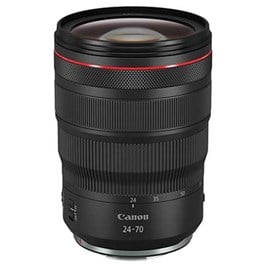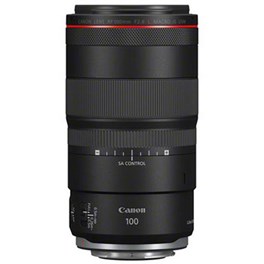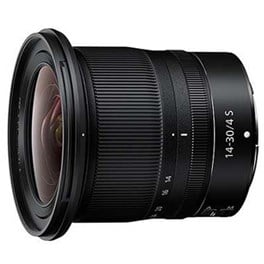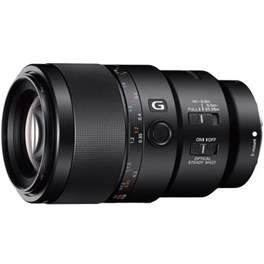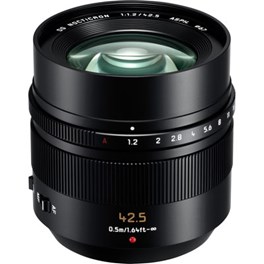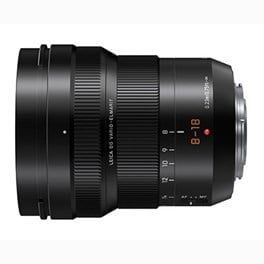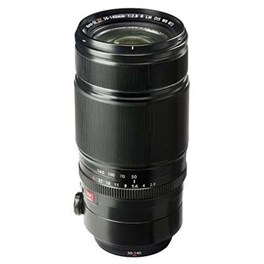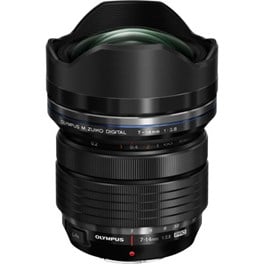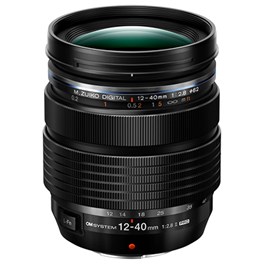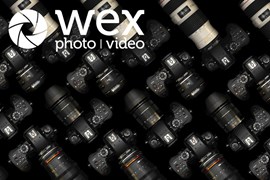
Having the best lenses for wedding photography is a vital first step in crafting a flexible shooting setup. Shooting weddings is highly challenging and comes with a lot of pressure, but can also be incredibly rewarding. But you only get one chance at capturing the big moments – so it pays to plan ahead.
Here are the key lens types that make for a solid wedding setup, which we’ve focused on in this guide:
24-70mm standard zoom - A highly versatile focal length, a 24-70mm can be a lifesaver if you find yourself operating in a tighter space than anticipated (venues always look bigger in the promo shots). You may well end up keeping this lens on your camera more than any other – it’s a great way to be prepared for anything.
70-200mm telephoto zoom - The standard workhorse lens for news-shooting professionals is also an excellent choice for weddings. The focal range produces flattering portraits without being so tight it’s hard to wield, and if you’ve got a wide maximum aperture (f2.8 is ideal) then you can easily throw out backgrounds to keep the viewer’s attention on your subjects.
50mm wide-aperture prime - A prime lens with a maximum aperture of at least f1.4 is an excellent choice for candid shots, especially once day turns to evening and the light gets low. A 50mm is great for naturalistic portraits, though if you prefer to get more in the frame at a time, you may want to go for a 35mm. Some photographers also swear by having an 85mm in their back pocket.
16-35mm wide zoom - When it’s time for the big group shots, you’re going to need a wide-angle perspective. Having a zoom gives you a little play when it comes to framing while still allowing you to make sure all those ancillary cousins at the edges are definitely in the shot.
100mm macro - This may seem like an unusual choice, but when it comes to weddings, the details really matter. A telephoto macro around the 100mm mark will enable you to get those essential detail shots that add colour, ambience and vibes to a wedding album. The ring on the finger, the close study of the floral arrangement, the place settings on the table.
We’ve picked a few standout lenses from each major camera brand that fit these criteria, as well as suggesting a few others to make up a complete setup.
Quick Navigation
Best Canon Lens for Wedding Photography
You can’t go wrong with a Canon setup for shooting weddings – whether you want to use EOS R mirrorless cameras or EOS DSLRs, there’s no shortage of choice when it comes to lenses. We’ve made our list with a mixture of options for both lens mounts, but remember that EF lenses can be adapted to the RF-mount mirrorless system (though not the other way around), so if you’re using an EOS R camera, you have a lot of choices available.
There are plenty of top-notch third-party lenses available for the EF mount (fewer for RF), so here and throughout, we’ve included lens options from other manufacturers where we reckon they offer a compelling alternative to the manufacturers’ own. We’ve also made our picks with the assumption you’re using a full-frame Canon camera rather than an APS-C model, as tends to be the case with wedding photographers.
Canon RF 24-70mm f2.8L IS USM Lens
The Canon RF 24-70mm f2.8 L IS USM Lens is the ultimate full frame mirrorless standard zoom lens for professionals who strive to achieve perfect edge-to-edge sharpness in their photographic works of art. Featuring excellent optical engineering, a fast f/2.8 max aperture as well as 5-stop image stabilisation, the Canon RF empowers the user to stay creative in all situations ranging from portrait to landscape photography. Thanks to the Nano USM motor which ensures instant and silent AF with exceptional smoothness the user can take images with a quick, accurate focus making this lens ideal for both stills and video. In addition to this, the lens has three glass moulded aspherical and three UD lens elements, advanced optical coatings, and a 9 blade aperture. The Lens Control Ring allows the user to control the lens settings and utilise it in a set of diverse scenarios such as macro work, with focusing as close as 21cm. With the Canon RF 24-70mm, the user can master light from any angle.
£2,519.00 View
Pros:
- Effective stabilisation
- Focuses quickly and quietly
- Great for close-ups
Cons:
- Weighs almost 1kg
A good 24-70mm lens should be a lens that does everything you could want to accomplish in that focal length, and the Canon RF 24-70mm f2.8L IS USM is all that and more. An absolutely outstanding workhorse for the mirrorless RF-mount system this lens is pin-sharp, equipped with fast Nano USM autofocus, and has excellent stabilisation that works in-tandem with the IBIS in compatible EOS R bodies. You can hardly ask for more when it comes to getting sharp shots.
One slightly unexpected treat about this lens is also how good it is for close-ups. It can close-focus at distances as short as 21cm, and provides an impressive 0.30x magnification capability – so you can get nice and close to the rings before they go on the fingers. Just be aware that it’s not a light lens, tipping the scales at around 900g.
Sigma 70-200mm f2.8 DG OS HSM Sport Lens for Canon EF
The Sigma 70-200mm f2.8 DG OS HSM Sport Lens offers outstanding action-capture performance perfect for a range of scenes, from news to sports, landscape, and portraits. The lens combines the necessary features required by professional photographers. This includes 10 exclusive low-dispersion glass elements, exceptional functionality and high-speed AF. Thanks to this the lens makes it possible to capture fast-moving and distant subjects, even in the most challenging of situations.
£1,199.00 View
Pros:
- Excellent value for money
- Great sharpness and image quality
- Durable, weather-sealed build
Cons:
- Heavier than other 70-200mm f2.8 lenses
Sigma’s Sports line of lenses are made for robust versatility and shooting speed, and the Sigma 70-200mm f2.8 DG OS HSM | S for Canon DSLRs is a prime example. It has a weather-sealed barrel which means you don’t have to stop shooting if the heavens open, and its image quality is consistently excellent throughout the zoom range. Thanks to the 11-blade diaphragm, the lens allows for the creation of aesthetically pleasing bokeh.
Autofocus is reliably snappy thanks to the Hyper Sonic Motor, and the Intelligent OS makes the stabilisation highly effective. The price tag makes it a compelling alternative to Canon’s own 70-200mm lens for DSLRs. Better hope you’re feeling strong though – the Sigma 70-200mm f2.8 DG OS HSM | S weighs around 1.8kg, double the heft of Canon’s RF 24-70mm f.2.8.
Canon RF 100mm f2.8 L Macro IS USM Lens
A welcome addition to Canon's esteemed RF lens line up, the Canon RF 100mm F2.8L Macro IS USM Lens is a feat of optical performance and engineering. The lens's complex and intricate optical structure comprised of 17 lens elements arranged into 13 groups. This includes a floating focusing lens system that is driven by a Dual Nano USM autofocusing system that delivers lightning-fast, smooth and accurate AF performance with a near-silent operation. A defining feature of this lens is the addition of a specially designed Spherical Aberration Control ring that offers enhanced and expressive control of depth of field and bokeh, allowing you to alter the look of your bokeh and defocus both in front and behind your subject. As well as this, the lens provides up to 5-stop of image stabilisation compensation, and this can be increased when pairing this lens with a compatible RF-Mount Canon camera that features IBIS. Again, this lens is a feat of engineering and photographic understanding.
£1,369.00 View
Pros:
- Pin-sharp optical quality
- 8(!) stops of stabilisation with in-body IBIS
- SA Control dial (bokeh control)
Cons:
- On the bulky side
- Focusing less capable with moving subjects
Following in the grand tradition of Canon’s EF 100mm f2.8 L Macro IS USM, the Canon RF 100mm f2.8 L Macro IS USM pairs peerless sharpness and highly capable close-up shooting with a hugely effective stabilisation system that makes it possible to get sharp shots hand-held. The RF version outguns its DSLR predecessor on that score – if paired with an IBIS-equipped EOS R body, it can achieve up to 8 stops of stabilisation.
There are plenty of other cool features too. We particularly like the SA (Spherical Aberration) control ring, which allows you to adjust the shape and quality of the bokeh in the defocused areas of images. For shots where you want a soft dreamlike look more than you want absolute sharpness, it’s a blessing (just be careful not to knock it accidentally). For detail shots, this lens is quite simply unparalleled.
Also consider:
Canon RF 50mm f1.2L USM Lens

Setting new standards of optical quality and speed, the Canon 50mm f1.2L USM Lens is the EOS R System's fastest lens offering supreme sharpness plus remarkable low-light performance. It features a large f/1.2 maximum aperture and a ring-type ultrasonic (USM) motor to deliver fast and precise focusing.
£2,449.00 View
Canon RF 15-35mm f2.8L IS USM Lens

If you are looking for a fast, sharp ultra-wide angle RF lens, then look no further. Canon's RF 15-35mm F2.8L IS USM lens is packed with features and stunning craftsmanship that makes it the perfect lens for landscape and architectural photography, but could easily be used in other avenues of photography. The lens features a nano USM motor system that allows for a quick, silent and smooth autofocus and it also has 5 full stops of image stabilisation which will help you to capture shake-free photos.
£2,399.00 View
Best Nikon Lens for Wedding Photography
Just as with Canon, we’ve got two fantastic systems here – Nikon F-mount DSLRs and Nikon Z-mount mirrorless cameras. Once again, lenses for the former can be adapted for use on the latter, with full functionality of autofocus and stabilisation (in the vast majority of cases), so mirrorless users can pick what they like with impunity.
When it comes to Nikon Z lenses, it’s worth looking for an “S” in the lens name – this denotes Nikon’s high-end “S-Line” lenses, which have to meet stringent standards of optical quality and are quite simply some of the best you can buy for the Nikon mirrorless system.
Once again we’ve also included third-party options, as there are some standout choices available, especially for Nikon F-mount DSLRs.
Nikon Z 70-200mm f2.8 VR S Lens
The Nikon Z 70-200mm f2.8 VR S Lens is an exciting new addition to the Nikon Z series of lenses. Its large focal range and superior lens construction makes it perfect for sports, events and even reportage. It covers every base for both stills and video work making it an incredibly versatile lens. It features a wide and bright constant f2.8 aperture, allowing use in all lighting situations, as well as featuring a handy OLED lens information panel on the side of the barrel which provides aperture, focus distance, exact focal length, ISO information at a moment's notice.
£2,499.00 View
Pros:
- Fast focusing, with solid close-up capabilities
- Superb image quality throughout zoom range
- Excellent stabilisation
Cons:
- Not a lot!
Superb mirrorless cameras like the Nikon Z9 and Z8 need exceptional lenses to match – and the Nikon Z 70-200mm f2.8 VR S fulfils that brief. The 70-200mm f2.8E AF-S FL ED VR for F-mount DSLRs was and is one of the most popular lenses among professionals, renowned for its ability to deliver shot after shot in basically any circumstances.
The Z 70-200mm f2.8 VR S is a worthy successor, not exactly reinventing the wheel, but delivering pitch-perfect handling, highly effective stabilisation, and of course, absolutely knock-down gorgeous image quality. It has a strong case for being the best 70-200 f2.8 lens ever made, and any wedding shooter using the Z system should make picking it up their highest priority. It’s not the cheapest lens, but it’s an incredibly worthwhile investment.
Sigma 24-70mm F2.8 DG OS HSM Art Lens for Nikon F
The Sigma 24-70mm F2.8 DG OS HSM Art Lens features an optical design that is ideal for the latest ultra-high-megapixel digital cameras. The hypersonic motor (HSM) has been incorporated into the lens design for high-speed autofocus. In addition to this, the user can enjoy an optical stabilizer (OS) with powerful stabilization effect, a dust- and splash-proof mount with rubber sealing, and a metal barrel for a stable, rigid feel. This 24-70 mm F2.8 zoom lens from SIGMA delivers the performance and functionality that help pros succeed in news, nature, and many other fields of photography.
£1,149.00 View
Pros:
- Very competitively priced
- Reliably fast autofocus
- Lovely bokeh quality
Cons:
- Not fully weather sealed
- Edge and corner performance less good at wide apertures
Designed to make the most of full-frame DSLRs, the Sigma 24-70mm f2.8 DG OS HSM | A is a lens that’s well worth picking up if you’re using a Nikon F-mount DSLR. It’s competitively priced compared to Nikon’s own 24-70mm f2.8 lenses, and it delivers everything wedding photographers are likely to need, with fast focusing powered by Sigma’s hypersonic motor (HSM). The built-in optical stabiliser also provides four effective stops of compensation.
The f2.8 aperture helps with throwing out backgrounds – though be aware that you will likely see some sharpness fall-off at the edges of images, and some vignetting in the corners.
While the lens has a body with dust- and splash-protection, it isn’t fully weather sealed, so bear that in mind when shooting outdoors.
Nikon Z 14-30mm f4 S Lens
The NIKKOR Z 14-30mm f/4 S, an ultra-wide-angle zoom lens compatible with the Nikon Z mount system and is part of the S-Line. This ultra-wide-angle zoom lens covers the 14mm to 30mm with a constant maximum aperture of f/4. The NIKKOR Z 14-30mm f/4 S is the world's first full-frame lens to support direct filter attachment, despite starting at a 14mm focal length.
£1,349.00 View
Pros:
- Very compact and unobtrusive
- Reliably excellent image quality
- Supports front filter attachment
Cons:
- f4 max aperture
- No Vibration Reduction stabilisation
This isn’t the fastest lens in its focal length for this mount, with the Nikon Z 14-24mm f2.8 S also available. However, this wide zoom for Nikon Z may well be the smarter choice for a lot of wedding photographers, especially if you have other wide-aperture lenses in your kit bag you can swap to when light levels drop.
For a start, the Nikon Z 14-30mm f4 S is nice and compact, weighing just 485g, meaning you can shoot without feeling like you’re lugging a brick around. Also, unusually for a lens this wide, it supports attachment of front filters with an 82mm thread, meaning you can slap on a polariser if you’re shooting outdoors and bright sunlight is causing problems. Bear in mind that this lens doesn’t have Nikon’s built-in Vibration Reduction, so if you need stabilisation you’ll be relying on the camera’s own IBIS.
Also consider:
Nikon Z 50mm f1.2 S Lens

Nikon's Z 50mm f1.2 S Lens is a remarkably high-quality lens that is capable of capturing stunning images. It's the perfect portraiture lens - the 50mm focal range is a classic portraiture focal range and this is complemented by the wide, bright and fast f1.2 aperture. This wide aperture enables an incredible control over depth of field which allows you to separate and isolate your subject from the background. This aperture also allows you to use this lens in adverse, low-light conditions where other lenses would not be able to cope. Nikon has used various lens coatings such as an Anti-reflection Areno and Nano-crystal coatings which significantly reduce lens flare and ghosting. Finally, Nikon has included an OLED screen to replace the conventional window. This screen clearly displays aperture, focal distance, ISO and depth of field.
£2,299.00 View
Best Sony Lens for Wedding Photography
The Sony mirrorless system is immensely popular with wedding photographers and videographers alike – if you’ve been to a fair few weddings over the past decade, you’ve almost certainly seen a photographer using Sony kit.
Sony’s flagship lenses are its G Master optics – these are the top-flight lenses that have been designed to deliver the pinnacle in ultra high-quality imaging. Monstrously sharp, and built with attention to quality on the outside too, Sony G Master lenses are the optimal choice for professionals. They’re not the only lenses to consider though – Sony’s long standing partnership with Zeiss has resulted in some absolutely outstanding lenses for full-frame E-mount, and there are a fair few specialist lenses in the Sony stable that don’t have the G Master designation, but nonetheless deliver impressive quality.
Sony FE 16-35mm f2.8 G Master Lens
Sony's FE 16-35mm f2.8 G Master is the first wide-angle G Master lens, ideal for a range of situations including landscape, portraiture, and general action. It is exceptionally lightweight and compact with excellent corner-to-corner sharpness and resolution throughout its entire zoom and aperture ranges.
£1,799.00 inc. Cashback View
Pros:
- First-rate performance throughout zoom range
- Controls exceptionally well for distortion
- Speedy autofocus
Cons:
- Cheaper third-party options available
An absolute diamond of a lens, the Sony FE 16-35mm f2.8 G Master has risen admirably to the challenge presented by the ultra-high megapixel counts of some of the manufacturer’s full-frame mirrorless cameras. Its construction internally consists of two glass XA (extreme aspherical) elements, three aspherical elements and two ED (extra low dispersion) glass elements. What this translates to in real terms is exceptional control of distortion and aberrations, meaning pin-sharp images from edge to edge. For your big group shots, you can relax, safe in the knowledge that even those on the edges are going to look great.
Granted, there are cheaper options out there, including Sigma’s 14-24mm f2.8 DG DN Art lens, and even Sony’s own FE 12-24mm f4 G. Nevertheless, the FE 16-35mm f2.8 G Master is in a league of its own.
Sony FE 50mm f1.4 ZA Planar T* Lens
With its fast f1.4 maximum aperture, standard focal length and Zeiss Planar optical design, the Sony FE 50mm f1.4 ZA lens is a high-performance prime lens designed for full-frame E-mount photographers. Its dust and moisture resistant design makes it perfect for everyday shooting, while its large f1.4 aperture allows for working in low-light conditions and provides greater control over depth of field for stunning selective focus imagery. Its 11-bladed aperture ensures beautiful bokeh, whilst AA and ED glass elements reduce spherical and chromatic aberration.
£1,299.00 View
Pros:
- Outstanding image quality
- Well controlled distortion/aberrations
- 11-blade aperture delivers outstanding bokeh
Cons:
- Big and bulky for a 50mm
With a Zeiss Planar optical design, you can rest assured that this lens is going to deliver something special. At first glance it looks incredibly big and bulky for a 50mm lens f1.4 lens – and it is. But all that bulk gets you an absolutely outstanding prime, capable of delivering both exceptional sharpness and dreamy bokeh. Want to make portraits in the wedding reception? This is the lens to do it with.
Attention has also been paid to the outside of the lens – the body is durably built, with dust and moisture resistance and well thought-out handling. Autofocus is near-silent thanks to the ring-type ultrasonic motor, meaning you can keep out of the way and focus on capturing stunning candid photographs of the wedding party. What more can you ask from a lens than that?
Sony FE 90mm f2.8 Macro G OSS Lens
The Sony FE 90mm f2.8 Macro G OSS lens is the first full frame E-mount medium telephoto macro with built-in image stabilisation to deliver crisp, high-resolution images with beautiful bokeh. A floating focus mechanism ensures that consistently superior optical performance is achieved at all focusing distances. The lens features a 1:1 magnification ratio and 0.28m minimum focusing distance.
£719.00 View
Pros:
- Consistently accurate autofocus
- Superb sharpness, particularly centrally
- Optical image stabilisation
Cons:
- Not fully weather sealed
If you want a lens that can flip between close-ups and portraits within seconds, the Sony FE 90mm f2.8 Macro G OSS will fit the bill perfectly. The chunky manual focus ring can be pulled forward and backward to toggle auto and manual focusing, allowing you to quickly switch depending on the situation.
In terms of performance, this lens delivers the goods, with outstanding central sharpness that will satisfy even resolution monsters like the A7R cameras. The lens has built-in optical stabilisation too – it’s not quite as sophisticated as systems we’ve seen on more recent lenses (this one is from 2016), but it still provides useful effective compensation for the movements of hand-held shooting, which is especially handy in the bustle of a wedding reception. The price has also come down a little in the years since the lens’ release, and these days it represents excellent value for money for Sony shooters.
Also consider:
Sony FE 70-200mm f2.8 G Master OSS II Lens
1 Year Extended Warranty
Defined as a high-powered, lightweight large-aperture telephoto zoom, the Sony FE 70-200mm f2.8 G Master OSS II has the capacity to produce stunning images on demand. Boasting an advanced optical design, this lens delivers accurate near-silent autofocus and tracking. In turn, this makes it ideal for a host of photographic disciplines to include portraiture, wildlife, sports, wedding, and events.
£2,479.00 View
Sony FE 24-70mm f2.8 G Master II Lens
1-Year Warranty
Introducing Sony’s FE 24-70mm f2.8 G Master II Lens. The first iteration of this lens took the photography world by storm, becoming widely regarded as one of Sony’s most versatile lenses. And yet, this lens offers an array of upgrades and refinements that result in truly spectacular, next-level performance. Excelling at both photography and video work, this lens is set to become a Sony classic.
£1,899.00 View
Best Panasonic Lens for Wedding Photography
A Panasonic wedding shooter might be using one of two systems. They might be wielding a Lumix G camera, in which case they’ll want to avail themselves of some of the many fantastic, lightweight Micro Four Thirds lenses. Or, they might be using one of the newer full-frame Panasonic Lumix S cameras, in which case the L-mount lens ecosystem is their playground.
While there aren’t as many L-mount lenses as there are for Micro Four Thirds, the fact that the mount was developed as part of an alliance between Panasonic, Sigma and Leica means that a heck of a lot of optical expertise has gone into its creation. There are some truly spectacular professional lenses available for L-mount, allowing you to get the best out of Panasonic’s Lumix S cameras when you’re shooting weddings.
Panasonic LUMIX S Pro 24-70mm f2.8 Lens
Just Launched
The Panasonic S Pro 24-70mm f2.8 lens a perfect every day, pro-level lens. It offers unlimited creative license with high-quality images as a result. It has been created for use on the L-mount system featured on full frame Panasonic cameras that Wex Photo Video stock. Quality and a maximum F2.8 aperture is ensured across the entire focal range and will not fail to produce high-end images. It is ideal for a large range of type of photography but is particularly useful for landscapes, portraiture and documentary photography.
£1,799.00 View
Pros:
- Sophisticated dual AF system
- Well built and durable
- Close focusing capability
Cons:
- No optical stabilisation
- Almost 1kg in weight
Covering a standard focal range, the Panasonic LUMIX S Pro 24-70mm f2.8 is an excellent go-to lens to keep on your L-mount camera throughout the majority of a wedding day. Its impressive optical build of 18 elements in 16 groups ensures pin-sharp detail across the frame, and the constant aperture of f2.8 gives you freedom to work in varying light conditions. The lens is also built to rugged standards, with full weatherproofing. Its dual focusing system consists of both a linear motor and stepping motor, ensuring that focusing action is consistently very fast. The close focusing distance of just 37cm also further extends your shooting versatility.
Just bear in mind this does add up to a fairly hefty lens, almost brushing the 1kg mark in weight (it sits at 935g). You may find yourself with achy arms if you tote it for too long.
Panasonic 42.5mm f1.2 ASPH Leica DG Nocticron OIS Lens
The Panasonic f1.2 ASPH Leica DG Nocticron O.I.S. Lens for the Micro Four Thirds system is a fast portrait lens with maximum f1.2 aperture and Optical Image Stabilisation. The aperture ring on the lens barrel allows direct, intuitive control over aperture settings so you don't have to take your eye off the subject and potentially miss the shot.
£1,149.00 View
Pros:
- Great sharpness at f1.2
- Excellent focal length for flattering portraits
- Focuses quickly
Cons:
- Aperture ring doesn’t work on all MFT bodies
With an equivalent focal length of 85mm, the Panasonic LUMIX G Leica DG Nocticron 42.5mm f1.2 ASPH Power OIS is pitch-perfect for portraits. While the tighter field of view may take some getting used to if you’ve been working with wider lenses, it’s great for getting flattering images of subjects with the background nicely thrown out – aided by the f1.2 maximum aperture. This lens is pretty affordable by f1.2 standards, and it still performs brilliantly wide open, so you can be confident in taking advantage of all that dreamy bokeh.
There’s a handy aperture ring on the body for intuitive control – just be aware that this only works on Panasonic bodies, not Olympus or OM-System. The lens is also optically stabilised, helping you keep your shots sharp when using it handheld (as you will be once the mingling and dancing get started).
Panasonic 8-18mm f2.8-4 ASPH Vario Lens
Panasonic has the launched the second lens of the LEICA DG VARIO-ELMARIT F2.8-4.0 Series, covering 16 mm Ultra-Wide Angle to 36 mm with high mobility. The new LEICA DG VARIO-ELMARIT F2.8-4.0 Series achieves superb picture quality and high performance for both photo and video recording but remains compact in nature. The 8-18 mm F2.8-4 is fully weather-sealed and freeze proof (to -10° C) and has a Nano Surface coating to reduce flare and ghosting.
£799.99 View
Pros:
- Outstandingly sharp
- Great wide option for MFT
- Nice and lightweight
Cons:
- Max. aperture not constant
- No stabilisation
The significant crop factor of Micro Four Thirds means that wide-angle lenses are in shorter supply. As such, the Panasonic 8-18mm f2.8-4 ASPH Vario is definitely worth picking up if you’re an MFT wedding shooter, as its 16-36mm equivalent focal range will allow you to get those big, expansive group shots. At just over 300g it’s a nice and light lens, but the 8-18mm is also astoundingly sharp, controlling well for distortion and chromatic aberration. It produces punchy images full of colour and bite.
The lens focuses fast and silently, meaning you can also mingle among the guests without drawing too much attention to yourself. Just be aware that the maximum aperture isn’t constant, running down to f4 when you zoom in all the way – so you may want to swap to a prime once the light gets low.
Also consider:
Panasonic LUMIX S 24-105mm f4 OIS Lens

The Panasonic S 24-105mm f4 Macro OIS is a versatile wide-angle to medium-telephoto lens that enables photographers to capture various subjects without the need to change lenses. Compatible with Panasonic's full-frame mirrorless S Series, this general purpose, weather-resistant lens is ideal for macro work and it also offers up to 6-stops of compensation when partnered with the Panasonic S1 and S1R's 5-Axis Dual I.S. technology.
£1,099.00 View
Panasonic LUMIX S Pro 70-200mm f4 OIS Lens

Introducing Panasonic’s LUMIX S Pro 70-200mm f4 OIS Lens. This flexible and versatile lens is suitable for a wide range of subjects from wildlife to portraits and is packed with features that make using this lens fun and efficient. This includes its constant f4 aperture that offers consistent light control throughout the zoom range and a 5-axis Dual Image Stabilisation 2 system that offers 6-stops of image stabilisation. Finally, image quality is ensured with its advanced optical structure.
£1,749.00 View
Panasonic LUMIX S Pro 16-35mm f4 Lens

The Panasonic LUMIX S Pro 16-35mm f4 Lens is a welcome addition to the growing range of Panasonic L mount lenses. It is suitable for a wide range of situations from landscapes, architecture to portraiture. The lens is comprised of 12 elements in 9 groups (3 aspherical lenses, 1 ED lens, 1 UHR lens) and features 9 diaphragm blades which can product some smooth bokeh. The lens is also splash, dust, and freeze proof (down to -10°C) meaning that your creativity will not be limited with this stunning 16-35mm f4 Lens.
£1,499.00 View
Best Fujifilm Lens for Wedding Photography
Fujifilm’s bokeh-tastic selection of X-mount lenses are ideally pitched for wedding photography. Full of creative expression and distinctive character, Fujifilm X lenses are known for their pin-sharp optics and big maximum apertures. Pair this with the fantastic features and image quality of the latest Fujifilm X-series cameras and you’ve got a seriously capable wedding setup on your hands. Remember that Fujifilm X cameras use APS-C sensors, so the crop factor will multiply the stated focal length by 1.5x.
However, there’s another set to consider – Fujifilm’s medium format GFX series. Lighter, faster and more affordable than traditional large-sensor cameras, these models have made medium format into a viable option for weddings, and as such, it’s worth having a look at the lenses that are on offer for the system. As the sensor is larger than full-frame, the crop factor works in the other direction – relative to 35mm sensors, it’s 0.79. This means a GFX lens with a stated focal length of 63mm, for instance, will behave in practice like a 50mm lens.
Fujifilm XF 50-140mm f2.8 WR OIS Lens
The Fujifilm 50-140mm f2.8 lens is an incredibly versatile, weather-resistant telephoto zoom designed for use with Fujifilm's X series of compact system cameras. Its focal length and constant f2.8 aperture across the board makes it perfect for sport, travel, wildlife and night time photography. This lens also comes equipped with the world's first Triple Linear Motor! This motor uses an inner focusing system that maximises portability and ensures a fast, smooth and quiet autofocus. This is a beautiful lens to use and you will not be disappointed.
£1,449.00 View
Pros:
- Optically sublime
- Effective stabilisation
- Premium metallic construction
Cons:
- A little prone to flare
- 1 metre minimum focusing distance
Running to an equivalent focal length of 75-210mm, the Fujifilm XF 50-140mm f2.8 WR OIS is an effective telephoto zoom for wedding shoots. As is commonly the case with Fujifilm lenses, its optics are absolutely first-rate – delivering dazzling quality throughout the zoom range. We’d go so far as to say that this is an essential lens for any Fujifilm X-using wedding shooter – and it’s reasonably affordable for an f2.8 lens in its class. Everything about the lens feels premium, including its metallic body construction.
It doesn’t focus as closely as some equivalent lenses for other systems, needing a metre of space in order to work, so you may want to make sure you also pack a close-focusing lens to keep all your bases covered. Be aware too that the lens is a little prone to flare when shooting into the light – though sometimes this can look quite aesthetic.
Fujifilm XF 50mm f1.0 R WR Lens
An incredibly fast and versatile prime lens, Fujifilm's XF 50mm f1.0 R WR Lens comes a welcome addition to the XF lens lineup. This lens gives the equivalent of a 75mm in full-frame 35mm format, perfect for capturing compelling portraiture. In addition, this lens features a wide and bright f1.0 aperture, the first of its kind for use on a mirrorless camera system. This aperture benefits working in adverse and difficult lighting conditions as well as giving you incredible control over depth of field, allowing you to isolate your subject with precise selective focus. Furthermore, this lens will produce beautifully smooth and soft bokeh that will elevate your photography. Weighing in at 845g, it is a hefty lens but when mounted on your Fujifilm mirrorless camera, it is well-balanced and it actually comparatively light considering it is a prime lens with a huge f1.0 aperture. Of course, the lens makeup; the glass elements and coatings provide pin-sharp images and reduced aberrations, flare and ghosting.
£1,499.00 View
Pros:
- Absolutely dreamy bokeh
- Performs well wide open
- Weather-resistant build
Cons:
- Focusing is noisy and can be slow
- On the bulky side
Fujifilm does like to try new things, and the XF 50mm f1.0 R WR with its ultra-fast aperture really is one of a kind. While many Fuji shooters swear by the popular XF 56mm f1.2 R WR, we’ve found ourselves charmed by this lens and its capacity to create razor-thin depth of field with luscious, creamy bokeh. Having f1.0 gives you a little extra juice in low light too, and with a 75mm equivalent focal length, you can create some spectacular-looking portraits throughout the evening.
While this lens is compatible with Fujifilm’s Face and Eye detection focusing systems, it’s not the fastest-focusing lens on the block, and the DC motor also makes an audible amount of noise when acquiring its target. If you can live with this, and the 845g heft of this lens, you’ll find it makes for a stunning addition to the kit bag.
Fujifilm GF 45-100mm f4 R LM OIS WR Lens
The Fujifilm GF 45-100mm F4 R LM OIS WR Lens comes as a welcome addition to the already impressive range of Fujifilm GF lenses. This lens has a compact and rugged construction, yet it still has the classic high-quality feel that we have come to expect from Fujifilm lenses. The lens itself consists of 16 elements in 12 groups, including 3 aspherical elements, 1 Super ED element and 1 ED element. These elements combined with near silent, fast and accurate linear driven autofocus makes for some stunningly sharp and beautiful photography.
£2,049.00 View
Pros:
- Extreme sharpness keeps up with GF cameras
- Optically stabilised
- Excellent build quality
Cons:
- Quite big and bulky
The sky-high resolution counts of Fujifilm’s GFX medium format cameras mean that they need optically excellent lenses to match – and the GF 45-100mm f4 R LM OIS WR is a zoom that delivers on that remit. With an optical design that controls well for distortion and chromatic aberration, the lens produces pin-sharp images that make the most of even the 100MP sensor of the GFX 100S. The lens delivers an equivalent zoom range of 36-79mm, and focuses impressively quickly thanks to its linear motor.
The build quality of the GF 45-100mm f4 R LM OIS WR feels truly premium, and the lens itself is weather-resistant. All this does add up to a bit of bulk, but this is to be expected with a medium format system – and when you consider the optical sophistication of the lens, if anything it’s a marvel that it isn’t bigger.
Also consider:
Fujifilm XF 16-55mm f2.8 R LM WR Lens

The Fujifilm 16-55mm f/2.8 R LM WR Fujinon lens is an excellent lens to use and can produce some stunning imagery. It's weather-resistant and features a constant aperture of F2.8 that consists of 17 elements in 12 groups. With these, it is capable of achieving edge-to-edge sharpness across the entire zoom range and the linear motor inside allows fast and quiet autofocusing. This lens is incredibly versatile and can cater to a whole range of photographic opportunities thanks to the wide-angle to medium telephoto zoom. Not only this, but its 9 rounded aperture blades create smooth, circular and beautiful bokeh.
£979.00 View
Fujifilm XF 80mm f2.8 LM OIS WR Macro Lens

Whether you are entering the world of macro photography or adept in the subtle style, the Fujifilm 80mm f2.8 XF LM OIS WR Macro Lens is a perfect option. The maximum F2.8 aperture, focal length that's equivalent to 122mm (in 35mm format) and 1.0x magnification factor means this lens is capable of capturing some stunning close up shots. Unlike some macro lenses, this lens supports hand-held use with the built-in optical image stabiliser which means you can take this lens out into the field without the need for additional kit. Finally, this is a Fujifilm lens after all and with that, a high quality build and beautifully ergonomic design is ensured. Take a look at the gorgeous sample images below!
£999.00 View
Fujifilm XF 8-16mm f2.8 R LM WR Lens

The ultra-wide angle nature of the Fujifilm 8-16mm f2.8 XF R LM WR Fujinon lens makes it a perfect lens for a landscape, architecture or nightscape photographer. The lens offers razor sharp detail across the entire frame and even at the max F2.8 aperture. This constant F2.8 aperture is maintained by the 20 elements in 13 groups, including four aspherical lens elements to control distortion and spherical aberration. In addition, six ED lens elements including three super ED elements will control lateral chromatic aberration. This is truly a stunning lens and its technical superiority goes hand-in-hand with its premium build quality and weather-sealing.
£1,499.00 View
Fujifilm GF 63mm f2.8 R WR Lens
Save £100, was £1359

Made up of 8 groups and 10 elements, including 1 ED (extra-low dispersion) element, the Fujifilm GF 63mm f2.8 R WR Lens is a compact, high-quality lens that is designed for use with the Fujifilm GFX 50S. It features an angle of view equivalent to 50mm in 35mm format, and has a front group extension type focus method in order to suppress aberration variations that can be caused by shooting distance.
£1,359.00 View
Fujifilm GF 20-35mm f4 R WR Lens

As the widest lens in the series, the GF 20-35mm boasts an incredible 108°-76° angle of view, a constant f4 aperture, and a sensor that is 1.7x larger than the full-frame standard. Whilst this large format zoom’s premium optical design is built for high-resolution images, its compact and lightweight chassis make it the perfect companion for landscape, travel and architectural photographers alike.
£2,349.00 View
Fujifilm GF 100-200mm f5.6 R LM OIS WR Lens

Fujifilm has designed some stunning lenses over the years and this GF 100-200mm f5.6 R LM OIS WR is no acceptation. This lens, which comes as part of the GF lens line up and for use with Fujifilm's GFX range of medium format cameras, has a large and versatile focal range; 100-200mm which equates to a 79-158mm focal range in 35mm full frame format. It features an f/5.6 to f/32 aperture range with a constant f5.6 aperture throughout the focal range. Its lens construction is built up of 20 glass elements in 13 groups, 2 super ED elements and 1 aspherical which together can produce pin sharp images that will highlight the incredible capabilities of the GFX camera line-up.
£1,799.00 View
Best Olympus/OM System Lens for Wedding Photography
Olympus and OM System cameras use the Micro Four Thirds lens mount, so the prospective wedding photographer has no shortage of lightweight lenses to choose from. The crop factor of Micro Four Thirds is 2x, meaning it effectively doubles the stated focal length of lenses – a 50mm lens will behave like a 100mm lens. This means you have fewer choices when it comes to wide-angles, but there are a few solid options to consider.
Also remember, you can also use Panasonic-branded Micro Four Thirds lenses on Olympus or OM-System cameras, so feel free to mix and match as you see fit. OM-System is just the rebranded name of the Olympus camera line following its sale to OM Digital Solutions – the cameras and lenses are all completely compatible.
Olympus M.Zuiko Digital ED 7-14mm f2.8 PRO Lens
Save £125 with code OLY125
The Olympus 7-14mm f2.8 PRO M.ZUIKO Digital ED lens is the first wide-angle Micro Four Thirds zoom in the M.ZUIKO PRO series. The lens has a compact, lightweight and weatherproof build, as well as the very best optical construction to deliver excellent results. Additional features of the Olympus 7-14mm f2.8 PRO M.ZUIKO lens include a manual focus clutch, and an L-Fn button on the base of the lens.
£1,249.00 View
Pros:
- Generous wide angle of view
- Constant f2.8 aperture
- Lightning-fast autofocus
Cons:
- No built-in stabilisation
- No front filter thread
A useful wide-angle zoom for MFT, the Olympus M.ZUIKO Digital ED 7-14mm f2.8 PRO is an essential buy for getting those all-important group shots. Its equivalent zoom range of 14-28mm should fit the bill nicely, and its rectilinear design (rather than fisheye) ensures that images won’t come out looking wildly distorted. The maximum aperture of f2.8 gives the lens real flexibility in low light, and the autofocus is whip-fast and accurate – as well as being practically silent. Also, the lens can focus in at distances as short as 20cm, which puts into play the potential for interesting detail close-ups.
Be aware that there’s no built-in stabilisation – the lens relies on in-camera systems. Also, its wide-angle optics mean there’s no thread on the front to attach a filter, so you won’t be able to manage reflections with a screw-on polariser.
Pros:
- Stunning sharpness across useful zoom range
- First-rate close-up capability
- Can replace several lenses at once
Cons:
- Sharpness drops a little at tele end
We normally wouldn’t have much time for a superzoom when it comes to wedding photography, as they’re usually just not sharp enough. A glorious exception, however, is the Olympus M.Zuiko Digital ED 12-100mm f4 IS PRO, a 24-200mm equivalent lens that delivers absolutely stunning images throughout its zoom range, and could well be a replacement for multiple wedding photography lenses at once. Because not only does it cover such an expansive range, but it also has incredibly close-focusing capability, meaning it can also be used for detail shots. Once you factor all this in, the price tag of the lens (on the high end for a superzoom) starts to make more sense.
Sharpness, as mentioned, is very good throughout – there’s a little drop off when shooting wide-open at the far telephoto end of the zoom, but not enough to seriously compromise your images.
OM SYSTEM M.Zuiko 12-40mm f2.8 Mk II PRO Lens
The OM SYSTEM M.Zuiko 12-40mm f2.8 Mk II PRO Lens arrives on the scene with a range of upgrades that improve on its ever-popular predecessor. This 12-40mm lens, with its 35mm full-frame 24-80mm equivalent focal range, is well suited to a wide range of shooting disciplines. And, equipped with an intricate optical structure and advanced AF system that offers exceptional image quality and performance.
£699.00 inc. Cashback View
Pros:
- Consistently good sharpness
- IP53 weather sealing
- Manual focus clutch
Cons:
- No stabilisation
Covering an equivalent focal range of 24-80mm, the OM SYSTEM M.Zuiko 12-40mm f2.8 Mk II PRO is a good choice for general-purpose photography throughout the wedding day. It delivers consistent, pin-sharp results at every stop on its focal range, and with a body that’s IP53 weather-sealed, it can take a sudden downpour with no problems.
The autofocusing is speedy and reliable, but one thing we especially like is the inclusion of a manual focus clutch system. You pull back the focusing ring and the lens will instantly switch to manual focusing operation, which is handy if you’re in a tricky situation and need to override the AF. When you’re done, just push the ring forward again to switch back. There’s no stabilisation system on the lens, though if you’ve paired it with a high-end Olympus or OM-System body, this shouldn’t be too much of an issue.
Also consider:
OM SYSTEM M.Zuiko Digital ED 90mm f3.5 Macro IS PRO lens

The new M.Zuiko Digital ED 90mm f3.5 Macro IS PRO is a highly versatile macro lens for field or studio photography. It has a 180mm equivalent focal length on 35mm format cameras and features an impressive 18 elements in 13 groups. This Micro Four Thirds lens is also dust-, splash-, and freeze-proof, with intuitive controls and advanced image stabilisation, so you can shoot in all conditions.
£1,099.00 inc. Cashback View

FAQs
What are the essential lenses for wedding photography?
The essential lenses for wedding photography typically include a prime lens with a wide aperture (e.g. 50mm f1.8 or 85mm f1.4) for portraits, a zoom lens (e.g. 24-70mm f2.8) for versatility, and a wide-angle lens (e.g. 16-35mm f2.8) for capturing group shots and venue details.
Why is a fast prime lens recommended for wedding photography?
A fast prime lens with a wide aperture (e.g., f1.8 or f1.4) is recommended because it allows you to capture stunning portraits with beautiful background blur (bokeh) and perform well in low-light conditions, common at weddings.
Should I use a zoom lens or prime lens for wedding photography?
Both have their merits. A zoom lens like the 24-70mm f2.8 offers versatility, while prime lenses (e.g., 50mm or 85mm) provide excellent portrait quality. Many wedding photographers use a combination of both to cover various situations.
Is image stabilisation important in wedding photography lenses?
Yes, image stabilisation can be beneficial, especially if you plan to shoot in low light or without a tripod. It helps reduce camera shake and allows for sharper images, particularly with telephoto lenses.
What is the ideal focal length for wedding photography?
The ideal focal length can vary depending on your style and preferences. However, many photographers find that lenses in the range of 35mm to 85mm work well for capturing wedding moments, with 50mm and 85mm being popular choices for portraits.
Are prime lenses better than zoom lenses for wedding portraits?
Prime lenses are often preferred for wedding portraits due to their wide apertures and ability to create stunning background blur. However, zoom lenses offer flexibility for capturing candid moments and group shots.
Do I need a macro lens for wedding detail shots?
While a macro lens is not essential, it can be useful for capturing intricate details like wedding rings, flowers, and other small items. A lens with a close-focusing capability can also work well for this purpose.
Should I invest in expensive lenses for wedding photography?
Investing in high-quality lenses is recommended for wedding photography, as they can significantly impact the overall image quality. However, you can find excellent lenses at various price points, so choose based on your budget and needs.
Can I use my kit lens for wedding photography?
While kit lenses can produce decent results, they may not perform as well in low light or provide the same level of image quality and control as dedicated wedding photography lenses. Upgrading your lenses is often a good investment.
What factors should I consider when choosing wedding photography lenses?
When choosing wedding photography lenses, consider factors such as focal length, aperture, image stabilisation, lens quality, and your shooting style. It's essential to have a well-rounded lens kit to cover various wedding scenarios.
How do we decide?
Our in-house photography experts, store staff and partners all work collaboratively to pour over these guides. The cameras and equipment recommended in our guides are based on their personal opinion, empirical experience and of course, feedback from our customers. We way up price, features, quality and the all-important 'je ne sais quoi' to make sure we recommend products that will delight and inspire.
If you would like more advice on any purchase our contact centre staff are here to help. Alternatively, you can reach us via email or social media. And don't forget. If you were to purchase anything based on our recommendations you'll be covered by our full returns policy
Buying Guides
